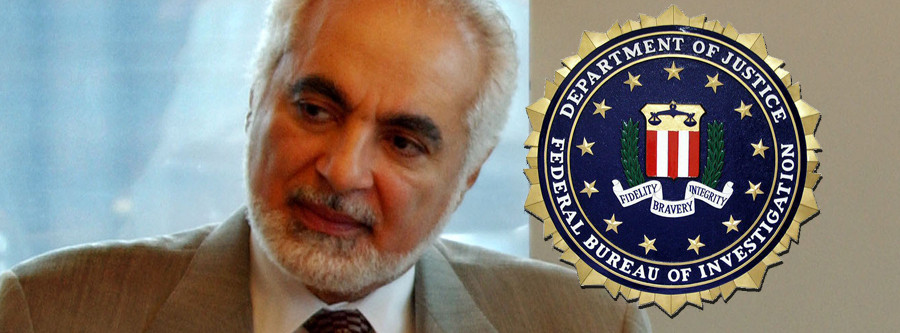SO 'RADICAL' HE'S FBI-APPROVED
'Ground Zero Mosque' Imam Advised FBI On Counterterrorism

In March 2003, federal officials were being criticized for disrespecting the rights of Arab-Americans in their efforts to crack down on domestic security threats in the post-9/11 environment. Hoping to calm the growing tempers, FBI officials in New York hosted a forum on ways to deal with Muslim and Arab-Americans without exacerbating social tensions. The bureau wanted to provide agents with "a clear picture," said Kevin Donovan, director of the FBI's New York office.
Brought in to speak that morning -- at the office building located just blocks from Ground Zero -- was one of the city's most respected Muslim voices: Imam Feisal Abdul Rauf. The imam offered what was for him a familiar sermon to those in attendance. "Islamic extremism for the majority of Muslims is an oxymoron," he said. "It is a fundamental contradiction in terms."
It was, by contemporaneous news accounts, a successful lecture.
Flash forward six-and-a-half years, and Feisal Abdul Rauf occupies a far different place in the political consciousness. The imam behind a controversial proposal to build an Islamic cultural center near those same FBI offices has been called "a radical Muslim," a "militant Islamist" and, simply, the "enemy" by conservative critics. His Cordoba House project, meanwhile, has been framed as a conduit for Hamas to funnel money to domestic terrorist operations.
For those who actually know or have worked with the imam, the descriptions are frighteningly -- indeed, depressingly -- unhinged from reality. The Feisal Abdul Rauf they know, spent the past decade fighting against the very same cultural divisiveness and religious-based paranoia that currently surrounds him.
"Imam Feisal has participated at the Aspen Institute in Muslim-Christian-Jewish working groups looking at ways to promote greater religious tolerance," Walter Isaacson, head of The Aspen Institute told the Huffington Post. "He has consistently denounced radical Islam and terrorism, and promoted a moderate and tolerant Islam. Some of this work was done under the auspices of his own group, the Cordoba Initiative. I liked his book, and I participated in some of the meetings in 2004 or so. This is why I find it a shame that his good work is being undermined by this inflamed dispute. He is the type of leader we should be celebrating in America, not undermining."
A longtime Muslim presence in New York City, Feisal Abdul Rauf has been a participant in the geopolitical debate about Islamic-Western relations well before 9/11. In 1997, he founded the American Society for Muslim Advancement to promote a more positive integration of Muslims into American society. His efforts and profile rose dramatically after the attacks when, in need of a calm voice to explain why greater Islam was not a force bent on terrorism, he became a go-to quote for journalists on the beat.
Story continues below
"We have to be very much more vocal about protecting human rights and planting the seeds of democratic regimes throughout the Arab and Muslim world," he told Katie Couric, then with NBC, during an interview in October 2001.
Along the way, he rubbed elbows with or was embraced by a host of mainstream political figures, including several in the Republican Party. John Bennett, the man who preceded Isaacson as president of the Aspen Institute, was impressed enough by the imam's message that he became a co-founder of his Cordoba Initiative, which seeks to promote cross-cultural engagement through a variety of initiatives including, most recently, the center in downtown Manhattan.
http://www.huffingtonpost.com/2010/08/17/ground-zero-imam-helped-f_n_685071.html